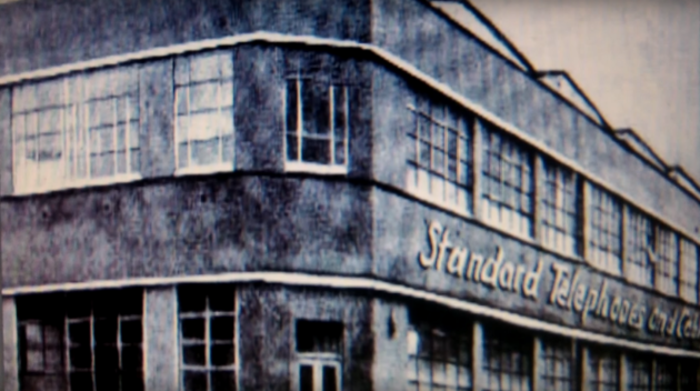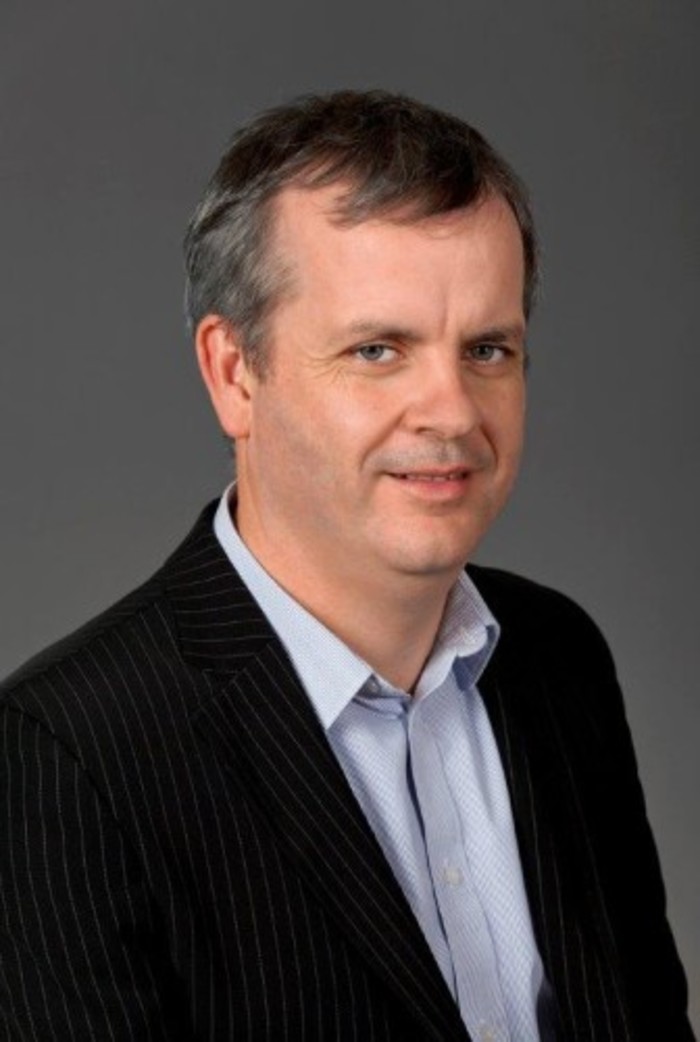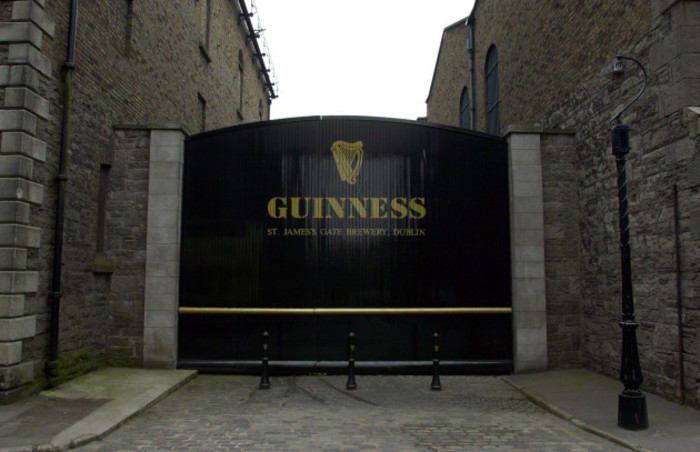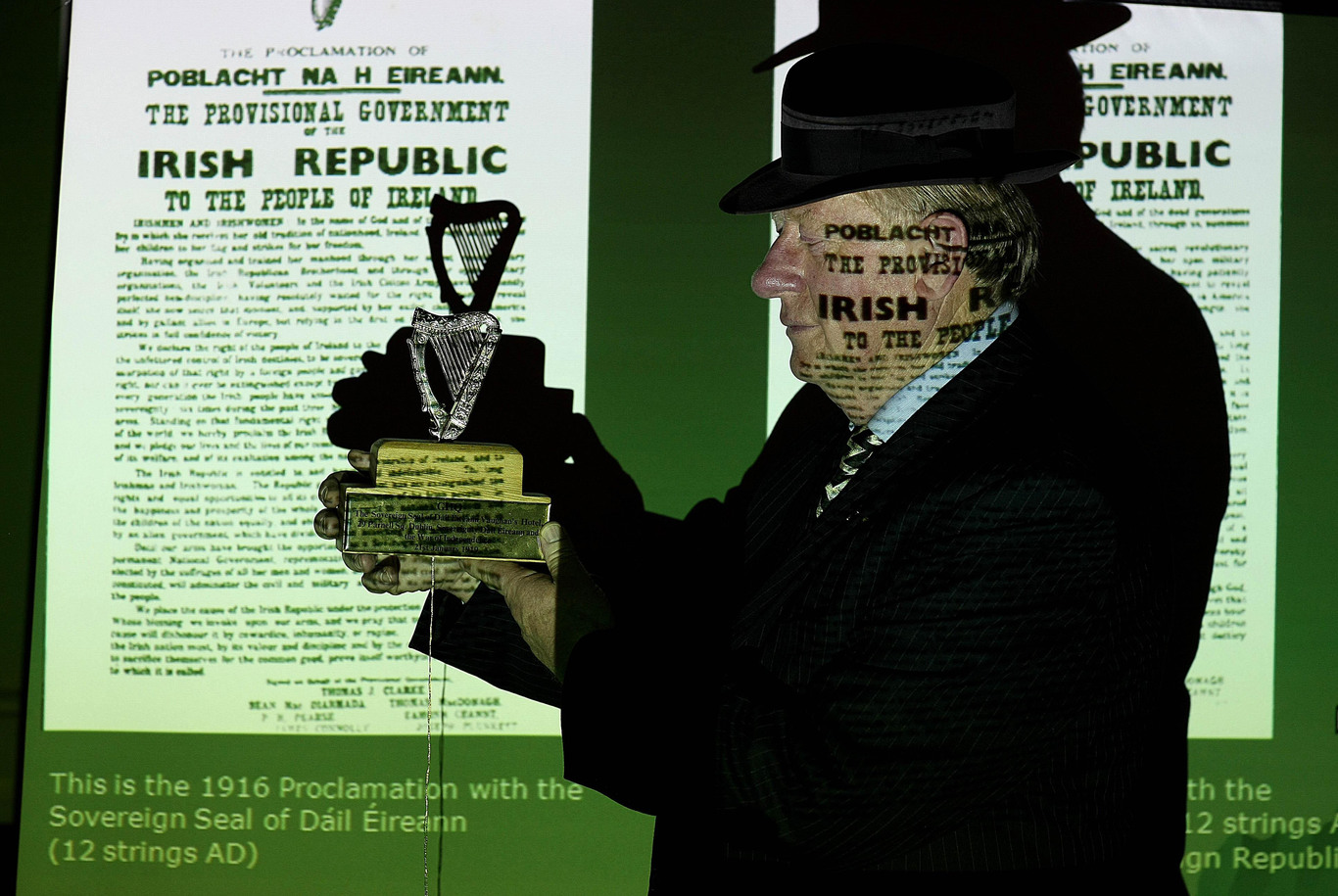Inside the company that helped cement the harp as Ireland's national symbol
As part of our weekly How My Business Works series, we profile Arthur Tomkins.
PROTECTING IRELAND’S NATIONAL symbol is a tough job, but somebody has to do it.
While some might prefer to think of Enda Kenny donning spandex and fighting off those who dare threaten the nation’s iconic harp, the job was actually handled by a small Dublin firm called Tomkins.
“Arthur Tomkins was the grandaddy of patenting in Ireland,” the company’s new owner and managing partner Cathal Lane tells Fora.
“In 1927 Ireland passed its first intellectual property legislation, which said that you needed to be registered in Ireland to register a patent. He was living in the UK but saw an opportunity to come over to Dublin to do work for his UK colleagues.
“He registered some of Ireland’s national symbols, like the harp (used in the coat of arms) and the shamrock, so that others couldn’t use them.”
Lane has headed up the company for the past 15 years and advises a slew of multinationals, including PepsiCo and healthcare giant Pfizer, on how to protect their ideas in Ireland.
The Meath native only had to make a short journey up the road to Dublin when he joined the firm more than two decades ago. The son of a farmer, Lane had no real desire to move into agriculture – although he maintains that it taught him valuable lessons that could later be applied to the business world.
“It teaches you that if you do something and it’s wrong you have to pay for it,” he says.
After studying science and chemistry – “you need to be able to understand the technology that you’re trying to protect” – Lane briefly worked for the global US pharma firm Bristol Myers Squibb before a spot opened up in Tomkins.
Starting off ‘green’, he trained up in patent law and moved through the ranks of the firm, eventually becoming the managing partner and owner.
Now leading the company, Lane splits his time advising huge foreign companies, a range of small Irish businesses and the occasional ‘mad scientist’ inventor.
“We send those guys to rivals,” he laughs.
What do you do and how long have you done it for?
Officially established in 1930, Tomkins is one of Ireland’s oldest legal firms specialising in intellectual property rights, which means it essentially advises people as to how they can protect their ideas.
Arthur Tomkins, who was born in Manor Park on the eastern outskirts of London in 1900, was working for a telegraph manufacturer called Standard Telephones and Cables when he was asked if he would move to Ireland to help with the business of a law firm called Byrne & Co.
He agreed to make the jump on the condition that he would own the company himself. Tomkins would become a well-respected figure in Irish patenting, helping to devise much of Ireland’s early trademark law and being elected the first president of the Association of Registered Patent Agents.
 Arthur Tomkins worked at Standard Telephones and Cables
Arthur Tomkins worked at Standard Telephones and Cables
Despite his influence, he remained a sole trader for decades before beginning to expand the company in the 1960s. The Dublin-based company employed more than 20 people by the 90s and has since grown to over 40 staff since Lane took the wheel.
“He started in a building on Grafton Street and had to move when his clients couldn’t park outside anymore, probably for horses and carts,” Lane says.
“He retired in 1988 or 1989 and died in 2004 at 104. When I joined he was still driving a car and was coming in and out maybe once a week. He was the grandaddy of patenting in Ireland.”
What are your costs and how do you make money?
Tomkins, like many legal firms, make most of its money by providing its clients with advice. The actual application fee to register a patent is relatively low in Ireland, varying between €50 and €100, although this is higher in many other countries such as the UK.
However, the actual cost of filing a patent for most businesses will run into five- or even six-figure sums, or even higher if there is an application for protection in a few different jurisdictions.
The bulk of this spend goes to whatever company is advising on the patent application as they guide the client on what needs to be done for a patent to be successful and useful.
“If you want a patent in Ireland we could do it for between €5,000 and €10,000, it depends on the technology and how complex it is,” Lane says.
“Lots of people spend tens of thousands over multiple jurisdictions over time. Most of the cost in patents is professional advice; you are charging for your time and expertise and for some clients you come to different arrangements.”
 Tomkins owner and managing partner Cathal Lane
Tomkins owner and managing partner Cathal Lane
Staff is the biggest cost for the company, which has to recruit specialists to handle different areas of patent law such as engineering or med-tech. As the firm deals with people from a network of countries, if its clients want intellectual property (IP) protection abroad then administrative work can also be a drain.
Tomkins is an unlimited company, which means that it does not have to publish its financial information with the Companies Office. Lane says that the business is profitable and has revenues of several million euro, but declines to give more detail.
What is your market?
Most of Tomkins’ business is international – Lane estimates that about a third of its revenue comes from Ireland and a third from the US, while the rest is sourced from Europe.
“It was one of the reasons that we could hold onto everyone we had during the recession. If we were 100% based in Ireland we would have been off a cliff,” he says.
The company’s international clients tend to be far larger than its customers in Ireland, although it has also worked with some major domestic players such as Diageo and Ornua.
“In Ireland we would deal with SMEs mainly; some startups, but mostly somewhere in the middle,” Lane says. “They’re not all smaller than the international ones, but mostly.”
Although the company has been based purely in Dublin since its inception, Lane says that he is weighing up whether to open an office abroad.
 Tomkins has done work for Diageo, which owns Guinness
Tomkins has done work for Diageo, which owns Guinness
“We would see some opportunity in Europe, for example Germany or the UK,” he says. “With Brexit, many UK representatives will no longer be able to file EU trademarks directly, but as we are qualified to practise in the UK we can do the UK bit and the European bit as well.”
What is the competition?
In Ireland there are several companies that provide the same service as Tomkins; firms like FRKelly also specialise in IP law and provide similar services in applying for patents.
However, Lane says that most IP firms in the Irish market are small-scale and the main competition comes from abroad.
“I did an analysis for a sales plan and Ireland has less than 0.1% of patent attorneys in Europe. You could (increase) your size by 10 and no one in Europe would even notice you,” he says.
“If you go pitching for work in the US it is very unlikely that an Irish rival will be doing the company’s work, it is more likely to be someone from Germany or the UK – they have about 30-40% of the patent attorneys in Europe.”
When going up against opponents either in Ireland or abroad, Lane says that the firm tries to distinguish itself by making the patent process as simple as it can be.
“We do the same core business as everyone else, we just try and make it easier for clients,” Lane says. “A lot of what we do is based on getting info and reports to give to clients to make things easy to understand.”
What is your vision?
Lane doesn’t have very specific goals in mind; or at least, if he does, he doesn’t want to share them.
As for virtually every business owner, growing the company is priority number one, with the Dublin man saying that growth of about “10% to 20% a year would be very helpful to us”.
“We would like to move up in the world in certain ways and be able to service sophisticated international clients more easily,” he says.
“We are looking at international people doing international work now rather than local, (and we want to) have a system for a larger portfolio.”
“I think people will always move things around and IP will always be one of the key ways to do that. If the rule is to have a more substantive presence to benefit from a tax regime than a company probably will.
“If you are not innovating and generating income then your tax regime is irrelevant and we would pride ourselves on people doing patenting for the right reasons.”
This article is part of our weekly series examining the nuts and bolts of businesses. If you would like to see your company featured please email news@fora.ie.






